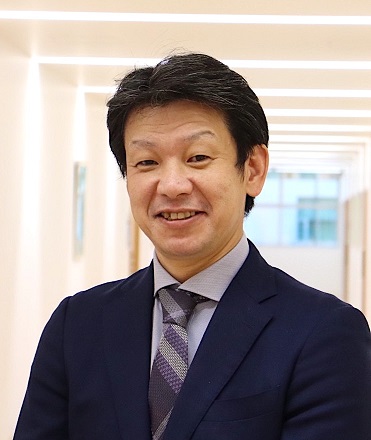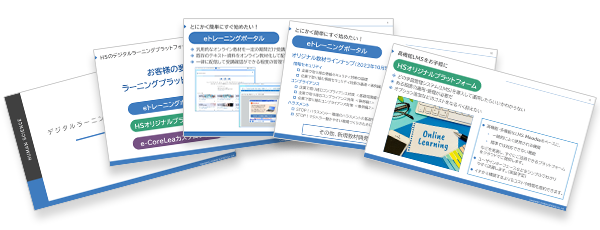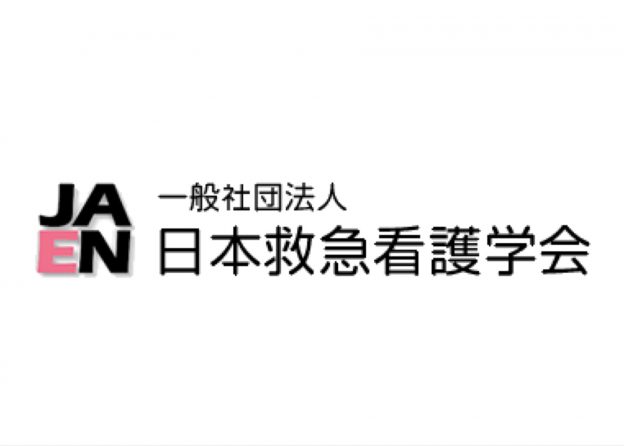
Overview of the Japanese Association for Emergency Nursing
Director and Councilor Junji Masuyama (Professor, Department of Nursing, Reiwa University of Health Sciences)
Services Utilized
Moodle Operation Services
・Moodle Cloud Package e-CoreLea
・Moodle Plugin・Customization
"In the situation where we have no choice but to switch to e-learning that can be done anytime and anywhere due to the COVID-19 pandemic"
Could you tell us about the initiatives of the Japan Society of Emergency Nursing?
Mr. Masuyama: Our association holds an academic conference once a year. This year marks our 25th anniversary. Additionally, we publish books related to emergency nursing and hold seminars. We have approximately 4,000 members, most of whom are nurses. Many university faculty members are also affiliated with us.
What is Mr. Masuyama's role in the Japan Emergency Nursing Society?
Mr. Masuyama: I am in charge of the seminars at the conference. Therefore, I am also responsible for Moodle related to the seminars.
What was the background behind the decision to implement e-learning this time?
Mr. Masuyama: This conference offers a wide range of educational courses and seminars within the nursing field. However, due to the COVID-19 pandemic, we were forced to cancel in-person seminars and had to switch to e-learning, allowing for learning anytime and anywhere.
--From what perspective did you choose Moodle as an e-learning system?
Mr. Masuyama: The professors at the conference were using Moodle for their classes during the COVID-19 pandemic, and I myself was also using Moodle and was familiar with it. Additionally, one of the reasons for choosing Moodle is that it is open source, allowing for various customizations. When we decided to implement an LMS, we researched several options, but for these reasons, we decided to utilize Moodle.
"The integration of the portal site and Moodle eliminates the need for manual user information registration. This has significantly reduced the workload."
Moodle has many features, but how do you find it after trying it out?
Mr. Masuyama: I feel that it is good that Moodle allows the use of quizzes, videos, and forum features as content. I think it is sufficient for creating various e-learning experiences. Like with my mobile phone, I prefer to use only the necessary features, so I have no particular issues with usability. There have been inquiries from seminar coordinators about whether certain things can be done, but I believe the current features are adequate to handle them.
- We have integrated the conference portal site with Moodle, but how effective has it been?
Mr. Masuyama: We are currently providing information to encourage more people to utilize the "Public University Faculty and Staff Training System" among the seminars being conducted online.
The portal site manages user information (member information) and application information. We have linked the portal site with Moodle, allowing user information and application information from the portal site to be migrated to Moodle. As a result, there is no longer a need to manually input user information and application information into Moodle, significantly reducing administrative workload. Additionally, we have enabled the migration of learning history from Moodle to the portal site. This allows us to track the course completion status of e-learning participants on the portal site. The development of this integration was carried out by the vendor on the portal side and Human Science on the Moodle side. This collaboration has been a tremendous help.
Could you please tell us the reasons why you chose Human Science?
Mr. Masuyama: We are currently providing information to encourage more people to utilize the "Public University Faculty and Staff Training System" among the seminars being conducted online.
Recently, there has been a rapid increase in companies dealing with Moodle. We gathered performance data and information from teachers, and compared several companies at the board meeting. Ultimately, we evaluated Human Science and decided on them as there were no issues with the pricing.
--What effects have you felt from implementing Moodle?
Mr. Masuyama: Due to the COVID-19 pandemic over the past three years, in-person classes were suspended. Initially, many students were not accustomed to online learning, and the number of participants did not increase much, but recently there has been a trend of growth. I feel this is one of the benefits of online learning.
Additionally, e-learning has the advantage of being able to be done at one's own pace, but the challenge remains in ensuring that participants continue to complete the courses, as it is easy to stop. However, initially, about 60% of participants completed the e-learning courses, and now that number has increased to about 80%, which I believe is a truly wonderful effect. In the situation where face-to-face learning was halted, I feel grateful and pleased that e-learning was able to continuously provide educational opportunities as an alternative.
For another purpose, we conducted a survey among our members. In questions regarding the extent to which our seminars and e-learning contribute to nursing practice, there were results indicating that e-learning has a higher contribution level. Currently, we are providing opportunities to improve assessment skills based on cases from CBL (Case Based Learning). We have discussed with the committee in charge of the seminars and believe that there is an effect that can be applied to practice as a learning outcome. Additionally, the ability to view the content multiple times was also well received. These are effects of e-learning that are not present in face-to-face learning, and I feel that the survey results were positive.
-- How is the response from Human Science?
Mr. Masuyama: Currently, even if a problem occurs and I consult via email, I receive a prompt reply, so I do not feel stressed. I would appreciate your continued support in the future as well.
-- If you have any future plans or schedules, please let us know.
Mr. Masuyama: We are currently providing information to encourage more people to utilize the "Public University Faculty and Staff Training System" among the seminars being conducted online.
At the conference, we plan to create several new courses, with blended learning as the foundation. We also intend to continue in-person sessions. We are discussing whether to implement pre-learning or post-learning as we move forward. In the future, we hope to enhance our e-learning offerings. Over the past year, a committee responsible for various seminars was divided into subcommittees, and we gathered once a month for a year to learn how to use Moodle. As a result, we added about two courses. It seems that it may still take some time for e-learning to become widespread.
Additionally, we are considering issuing specialized licenses to those who complete learning courses up to a certain level in the future. We aim to clarify the skills necessary for emergency nursing practice and provide the required courses to our members.
Related Services
Case studies of companies that have implemented our services e-learning (digital learning)
Case study collection
From e-learning implementation support to material production, Human Science offers a variety of services related to e-learning.
In this case study collection, you can view the implementation examples of 8 companies that have used our services. Please take this opportunity to download it.

[Introducing Companies]
- Utsunomiya Light Rail Co., Ltd.
- Tokyo Electron, Inc.
- Okinawa Institute of Science & Technology Graduate University Dear
- NIPPON DENSETSU KOGYO CO.,LTD. Dear
- University of Tsukuba
- Sanken Electric Co., Ltd. Dear
- Japanese Association for Emergency Nursing
- The Open University of Japan
8 case studies of companies




